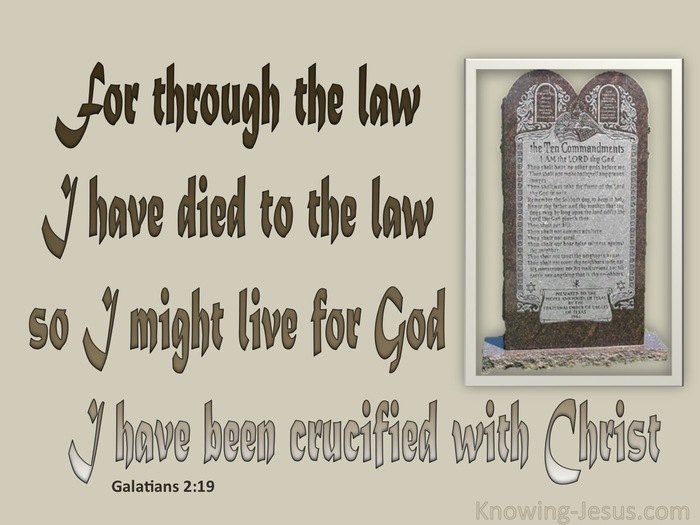11 Bible Verses about Antioch in Syria
Most Relevant Verses
This arrangement pleased the whole group, so they selected Stephen, a man full of faith and the Holy Spirit, Philip, Prochorus, Nicanor, Timon, Parmenas and Nicolaus, a proselyte [i.e., convert to the Jewish religion] from Antioch.
Those who were scattered everywhere as a result of the persecution [being waged against the church] because of Stephen's [death], traveled as far away as Phoenicia, Cyprus and Antioch, declaring the message to Jews only.
But when some men from Cyprus and Cyrene came to Antioch, they preached [about] the Lord Jesus to the Greeks [i.e., Gentiles] also.
and when he found him, he brought him [back] to Antioch. So, for an entire year Saul and Barnabas gathered the church together and taught many people. [It was] here in Antioch that the disciples were first [divinely] called Christians.
And the news about [what was being done by] these people reached the church in Jerusalem, so that they sent Barnabas to Antioch [in Syria]. When he got there and saw how God was favoring the people [with salvation] he was very happy and [stayed on and] encouraged everyone to remain close to the Lord with a heartfelt purpose. [Now] Barnabas was a good man who was full of the Holy Spirit and of faith [in the Lord], and many people were added to the [church of the] Lord.
Then he went on to Tarsus to look for Saul [Note: Tarsus was the home town of Saul, who was later called Paul], and when he found him, he brought him [back] to Antioch. So, for an entire year Saul and Barnabas gathered the church together and taught many people. [It was] here in Antioch that the disciples were first [divinely] called Christians. During those days some prophets came down from Jerusalem to Antioch.read more.
One of them, a man named Agabus, stood up and indicated by [the direction of] the Holy Spirit that there was going to be a severe worldwide famine, which [actually] took place during the time that Claudius ruled. [In response to this prediction], the disciples decided to send as much relief as they could to help the brothers living in Judea. So, they sent [what was donated] to the elders [of the Judean churches] by Barnabas and Saul.
Now in the church at Antioch there were [these] prophets and teachers: Barnabas, Symeon, called Niger, Lucius of Cyrene, Manaen, the foster-brother of Herod the Tetrarch [i.e., governor of Galilee], and Saul. As these men were ministering to the Lord [i.e., this probably means worshiping] and fasting, the Holy Spirit said [to one of them by way of inspiration]: "Set Barnabas and Saul apart for Me, [commissioning them] to do the work for which I have called them." Then, as these prophets and teachers fasted and prayed [for the two men], they placed their hands on them [signifying their appointment for this ministry] and sent them away.read more.
So, as they were sent out by [the direction of] the Holy Spirit, they went down to Seleucia [a seaport], and from there they sailed on to [the island of] Cyprus.
But Paul and Barnabas remained in Antioch and, along with a number of other [brothers], taught and proclaimed the message of the Lord [there]. Then after some days Paul suggested to Barnabas, "Let us go back and visit the brothers in all the towns where we proclaimed the message of the Lord, to see how they are doing." Barnabas [agreed, and] wanted to take John Mark [his cousin, See Col. 4:10] with them.read more.
But Paul was not at all in favor of taking someone who had left them and refused to continue on in the work [of preaching the Gospel] when they were in Pamphylia. [See 13:13]. A heated discussion developed [over this matter] so that Paul and Barnabas went their separate ways [over it], with Barnabas sailing for Cyprus and taking [John] Mark with him. But Paul chose Silas and, after being commended to the [care and] favor of the Lord by the brothers, he left, traveling through Syria and Cilicia, strengthening the churches [along the way].
And from there they sailed to Antioch [in Syria], from where they had [originally] been committed to God's favor for [carrying out] the work which they had just completed. And when they arrived [in Antioch of Syria], they gathered the church together and reported everything that God had done through them and how He had opened a door [of opportunity] for the [unconverted] Gentiles to [enter] the faith. And they stayed with the disciples [there at Antioch] for quite some time.
Certain men [i.e., believers, see verse 5] came down from Judea [to Antioch of Syria] and began teaching the brothers this: You cannot be saved unless you are circumcised according to the custom [required] by Moses. After Paul and Barnabas had a heated debate and argued with these men [over this issue], the brothers [of the Antioch church] decided that Paul and Barnabas, along with certain others, should go up to Jerusalem and discuss the question with the apostles and elders there. So, they were sent on their way with the backing of the [Antioch] church and traveled through both Phoenicia and Samaria, telling them about the conversion of the Gentiles. This brought great rejoicing to all the brothers [who heard about it].read more.
When they arrived in Jerusalem they were welcomed by the church, together with the apostles and elders, and then reported everything that God had done through their ministry.
But when Cephas came to Antioch [of Syria], I confronted him personally [about a matter] for which he deserved to be condemned. For, before certain [leaders] came from James [i.e., Jesus' brother, a leader of the Jerusalem church, See Acts 12:17; 15:13-22], he had eaten [a social meal] with some Gentiles. But when these men came, he abruptly discontinued this practice out of fear of the circumcised ones [i.e., out of concern for what the Jews would think of him]. Then the rest of the Jews also discontinued [eating with Gentiles] along with Peter, until even Barnabas was influenced to go along with this hypocritical practice.read more.
But, when I saw that they did not act in harmony with [the principles of] the truth of the Gospel [message], I said to Cephas in front of everyone, "If you, being a Jew, act like a Gentile [by showing such discrimination], how do you expect to persuade Gentiles to live like Jews [i.e., like Christian Jews who are taught to love all people]?" Although we are Jews by natural birth, and not sinful Gentiles [who do not have a relationship with God], still we know that a person is not justified [i.e., made right with God] by [perfect obedience to] the law of Moses, but rather through faith in [the person and work of] Christ. [Knowing this] we have trusted in Christ Jesus [to save us], so that we might be made right with God by trusting in Him and not by [our compliance with] the requirements of the law of Moses. Because by such law-compliance no one can be made right with God. But, if while we were trying to be made right with God through a relationship with Christ, we were discovered to still be sinners [by acting like unsaved Gentiles], does that mean Christ is responsible for our sin? Of course not. For if I try to build up again what I had already destroyed [i.e., by returning to depend on compliance with the law of Moses to become right with God, after having rejected this system by trusting in Christ to save me], I would certainly be guilty of sin. For it was by means of [this system of] law-keeping that I [realized I] was dead. This was so I could find life through a relationship with God. I have been crucified [i.e., died] with Christ, and so I am not the one who lives [anymore] but rather, it is Christ who lives in my heart. And [now] my entire life is being lived by trusting in the Son of God [to save and keep me], because He loved me and gave Himself up for me. [In doing this] I am not trying to disregard God's unearned favor, for if a person could become right with God by [perfect obedience to the requirements of] the law of Moses, then Christ died for nothing.
Related Topics
Never miss a post





